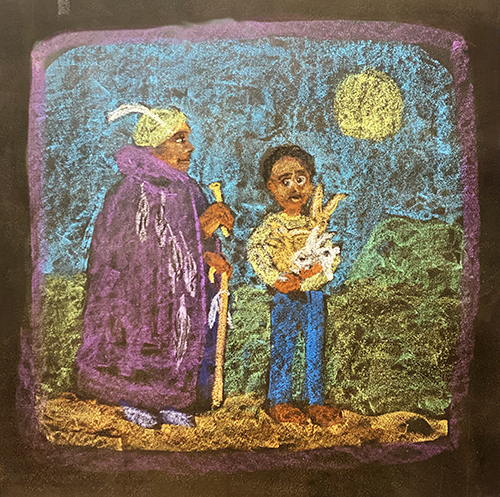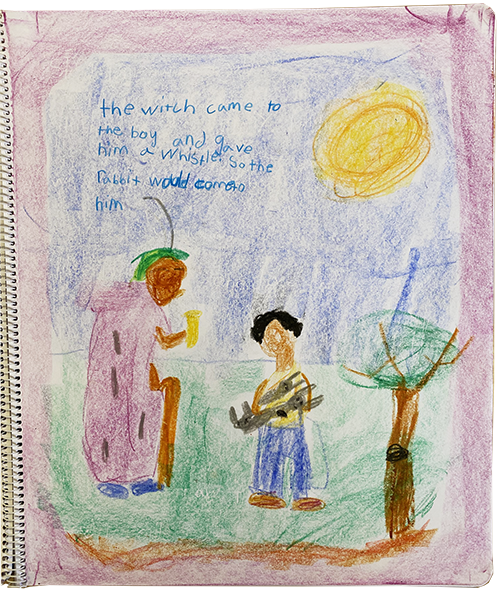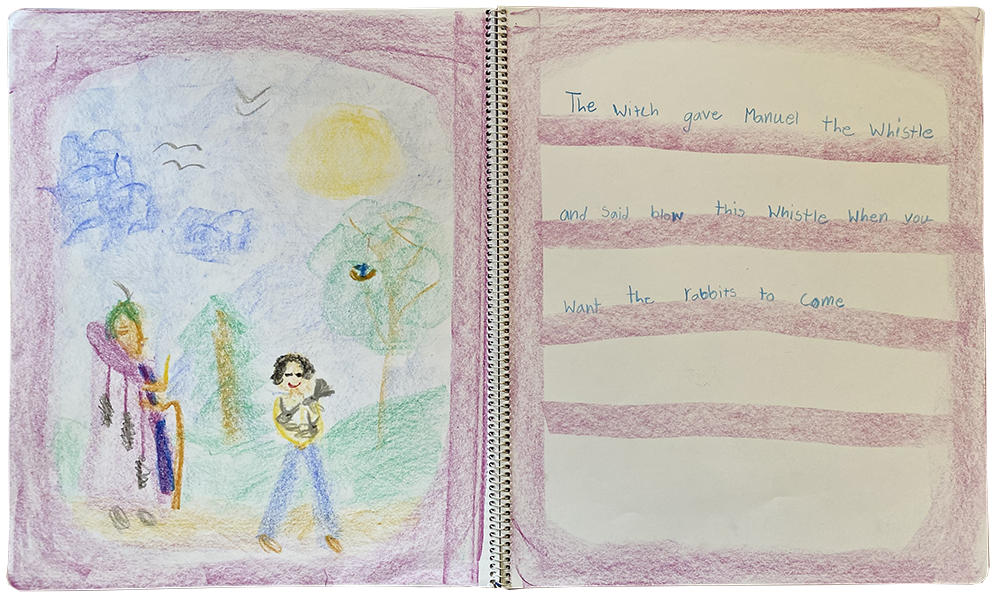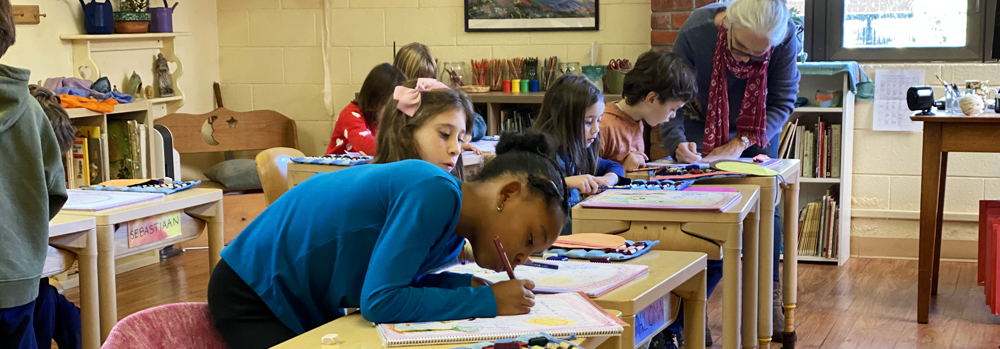Celebrating Black History and Manuel Had a Riddle
||| Black history is part of human history and is important all year long, as are all cultural lineages in this global education. But this time of year does offer an extra opportunity for teachers to explore the cultural and historical legacies of the African Diaspora in relation to the curriculum for that grade or subject. Over the next few weeks, we’ll share some of the ways our teachers have been inspired by Black History Month to bring developmental content to the students.
In Waldorf schools, the teaching of history emerges developmentally and in stages, as children emerge from the world of fantasy and imagination into the world of external realities, historical facts, and critical thinking. In First Grade, so-called Fairy Tales from around the world are told, as the children are still very much living in their imaginations. In Second Grade, the focus shifts to folk-tales and fables (often featuring tricksters), stories of holy or virtuous people (such as saints), Native American legends, and mythology from cultures around the world. In Third Grade, Hebrew studies forms a bridge to history, as students experience both the historical and the wondrous elements of the Hebrew Bible. Also the building of shelters and culinary explorations connect students to the daily lives of communities around the world. In Fourth Grade, the focus is on local and indigenous history and culture. As the grades progress, history is taught more and more explicitly. By eighth grade, our students are looking at both primary and secondary sources, and critically analyzing how the narrative of historical events may contain biases and motivations other than simply seeking the truth.


Second Grade Teacher Sylvia Hurdle shared a story with her students called Manuel Had a Riddle from the Cape Verde Islands. These islands in the middle of the Atlantic were uninhabited (as far as current archaeologists can determine) until Europeans built outposts there in the late 15th Century. The Portuguese settled them and turned them to the enterprise of the Atlantic slave trade. Today, they are inhabited by descendents of mixed West African and Portuguese heritage, who speak Cape Verdean Creole as a national language and Portuguese as an official language. Cape Verde gained independence from Portugal in 1975.
Ms. Hurdle did not teach this history, however, as second grade is not yet the time to explore these themes. Instead, she shared the wonderful folktale about Manuel’s quest to out-maneuver a tricky royal family with a clever riddle. Riddles have been an important part of the lower grades lately. They are part of Lunar New Year celebrations in China, where riddles are hung in lanterns. The teachers brought that tradition to BRWS this year, and second graders have been relishing pondering these riddles. This Cape Verdean folktale tied in beautifully with that active interest among the Second graders, and features both bravery and trickery. Enjoy their drawings (and Ms. Hurdle’s!) of an important scene from this folktale.


